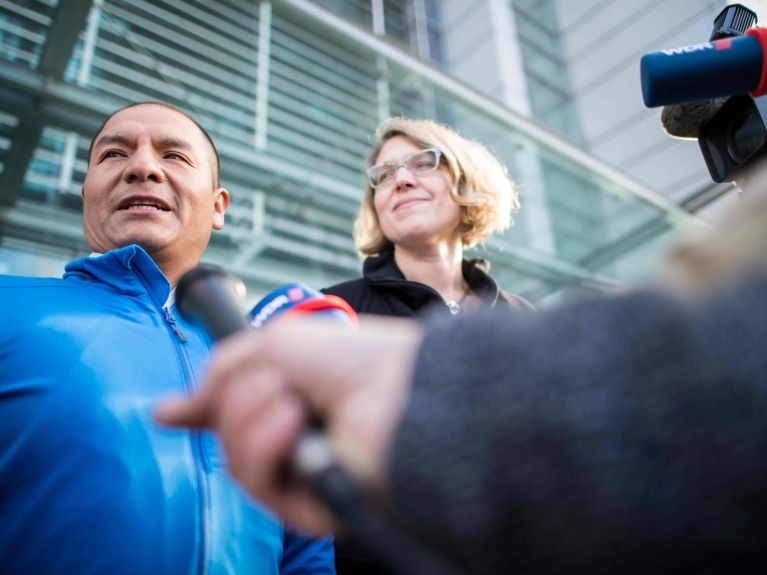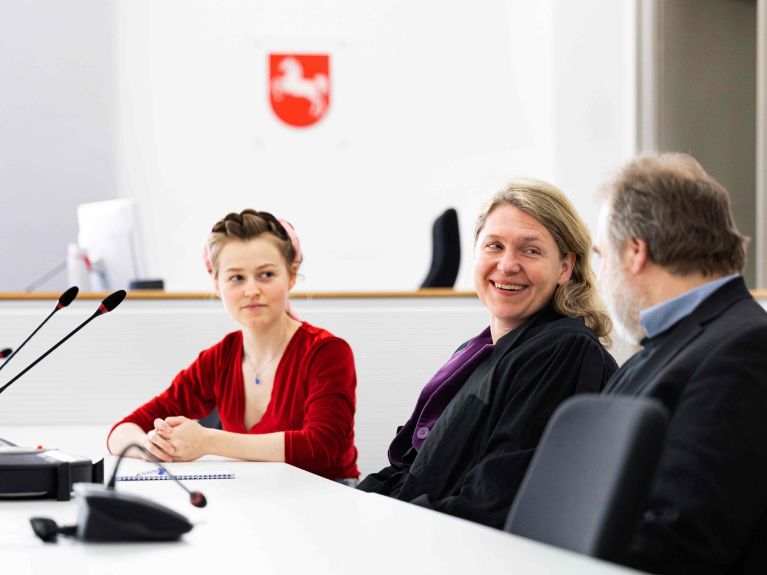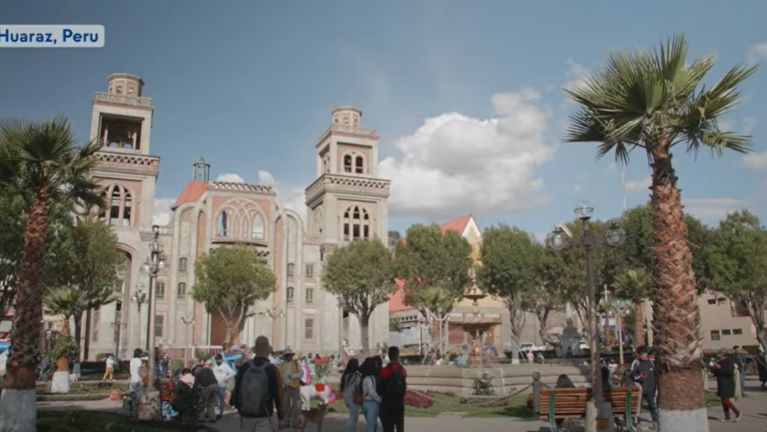“Our Basic Law actually covers pretty much everything”
Protection of the environment is enshrined in Germany’s Basic Law. The lawyer Roda Verheyen is taking legal action to enforce this protection.

Ms Verheyen, was there a particular “lightbulb moment” when you realised that your commitment to climate action had begun?
Yes, that moment came 22 years ago. I had just begun my law degree and was looking at the first report of the Intergovernmental Panel on Climate Change (IPPC). It occurred to me then that we were conducting an irresponsible experiment with our planet.
And law seemed to you to be the right subject to study in order to do something about that?
Yes, as the way we treat nature contradicts any sense of legal justice. Over time, the feeling I’d had back then became more and more entrenched. The purpose of law is to protect individual human rights and collective rights – but also to protect the environment, because we need it and because we are not the only ones on this planet.

Since 2015, you have been representing the Peruvian farmer Saúl Luciano Lliuya in a lawsuit against the energy corporation RWE, a company that is one of the biggest emitters of greenhouse gases. Lliuya lives in a village below a mountain lake. As the glaciers retreat, chunks of ice and rock threaten to plunge into the lake, which would trigger a tidal wave. What prompted you to take on this case?
Before I became a lawyer I worked in the area of climate diplomacy, advising non-governmental organisations and countries. Even back then it was quite clear that climate change was having a particular impact on those who had themselves emitted only little in the way of climate-harmful gases. This gives rise to a historic responsibility that is known these days as climate justice. When the opportunity arose to talk to a specific person about a specific case, I didn’t hesitate for a moment.
Dieses YouTube-Video kann in einem neuen Tab abgespielt werden
YouTube öffnenThird party content
We use YouTube to embed content that may collect data about your activity. Please review the details and accept the service to see this content.
Open consent formYou took a look at the situation in the Peruvian mountain village for yourself.
Yes, indeed. Not only do people there lack the resources to protect themselves against the consequences of climate change - there are also no disaster prevention measures in place at the institutional level. That’s why it was obvious to me that I would accept this case. At the time, I could not have imagined what this process would trigger or that it would drag on until now.
It is not the only one of your cases to attract a lot of attention. In 2021, you managed to get Germany’s Federal Constitutional Court to declare parts of the German Climate Change Act unconstitutional. How do you feel about this verdict?
For me personally, and at the international level, the decision was very significant. It continues to provoke many legal debates. Unfortunately, the extent to which it is being implemented on a legal level, and indeed by national courts, remains unclear so far. For example, I argued immediately afterwards that, because of the constitutional importance of protecting the climate, the burden of proof should be reversed when it comes to projects involving high emissions. In other words, anyone wishing to release emissions would have to prove that the climate targets can be met nonetheless. Sadly, this view has been rejected by several courts.
Does the Basic Law itself need to be changed in some way?
The Basic Law already mandates us to protect the climate. At the same time, lawmakers have a certain amount of room for manoeuvre. That is also quite right because it reflects the separation of powers and takes into account the fact that not every detail of all situations can be laid down in the Basic Law. I am always cautious when it comes to changing the Basic Law. Our Basic Law actually covers pretty much everything. It is a good system that we must handle carefully. But perhaps the Basic Law also needs to face up to the reality that it was created in a world that still had a relatively small human population.
So a change is needed after all?
We must ask ourselves: Are there really no limits to what we humans can do? Is there any way to make sure that planetary boundaries - which have long been recognised by scientists - are respected? If we fail to do so, sooner or later there will no longer be any basis upon which to exercise our human rights at all.
Is that a discussion that you would like to see conducted as we mark 75 years of the Basic Law?
This anniversary should certainly be celebrated, but it is also grounds for engaging in debates. Furthermore, I would want us to bear in mind to a greater extent that we also have a higher-level European constitution - the Charter of Fundamental Rights of the EU. We should celebrate it just as much as our Basic Law, and we should apply it more.

Your work involves fighting against some powerful opponents – global corporations and governments. Does this require particular courage?
I don’t feel particularly courageous. I live in safety here in Germany and have never been threatened by anyone. That’s a privilege that my colleagues in some other countries do not enjoy.
Even if you perhaps don’t need courage, your work surely requires you to tolerate a certain amount of frustration. What gives you hope?
All the young people who are interested in my work, take to the streets and genuinely want to bring about a transformation - that gives me hope. It is also thanks to them that I have little doubt that I am right to continue my work. Giving up or bowing out is not an alternative.
___________________________
Dr Roda Verheyen, born in 1972, is a lawyer in Hamburg and a lay judge at the Hamburg Constitutional Court.



